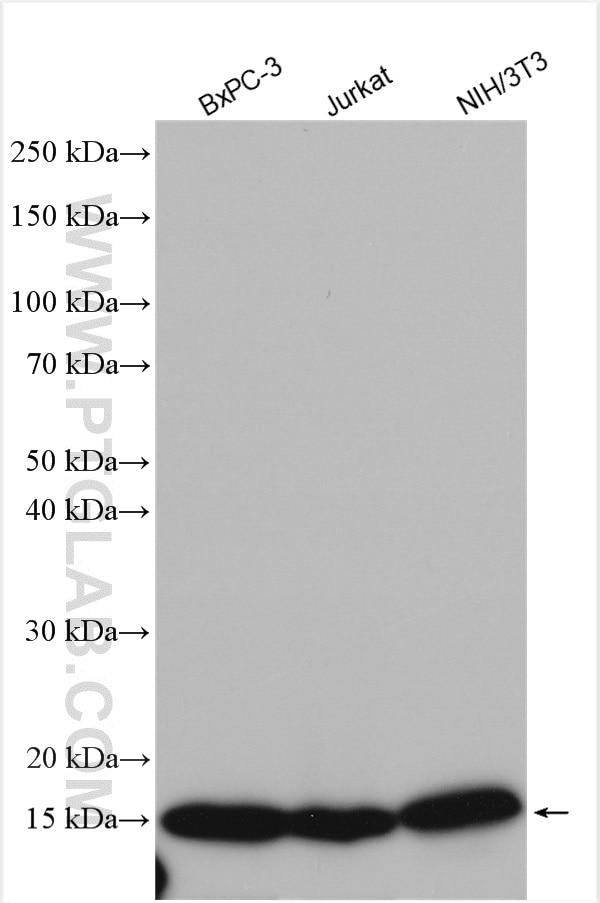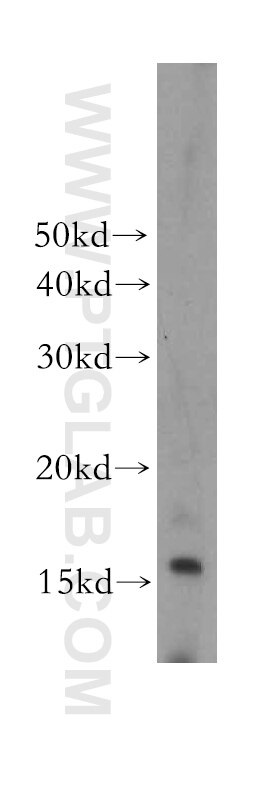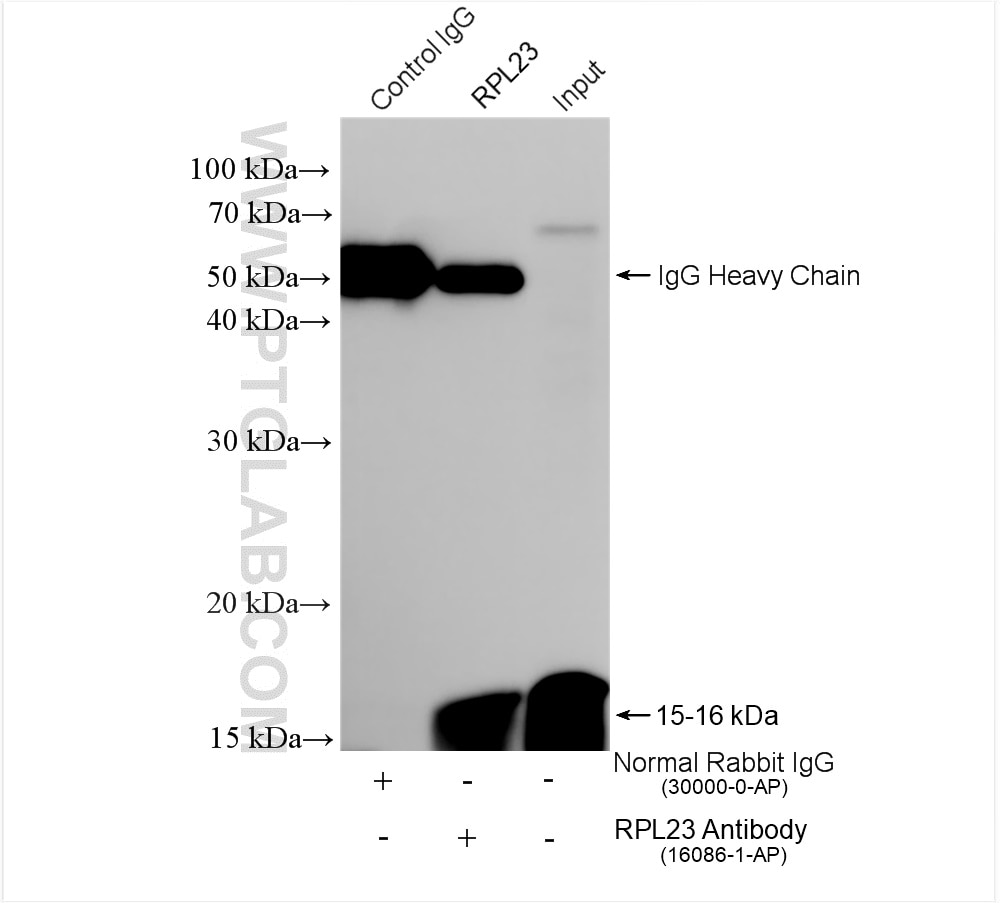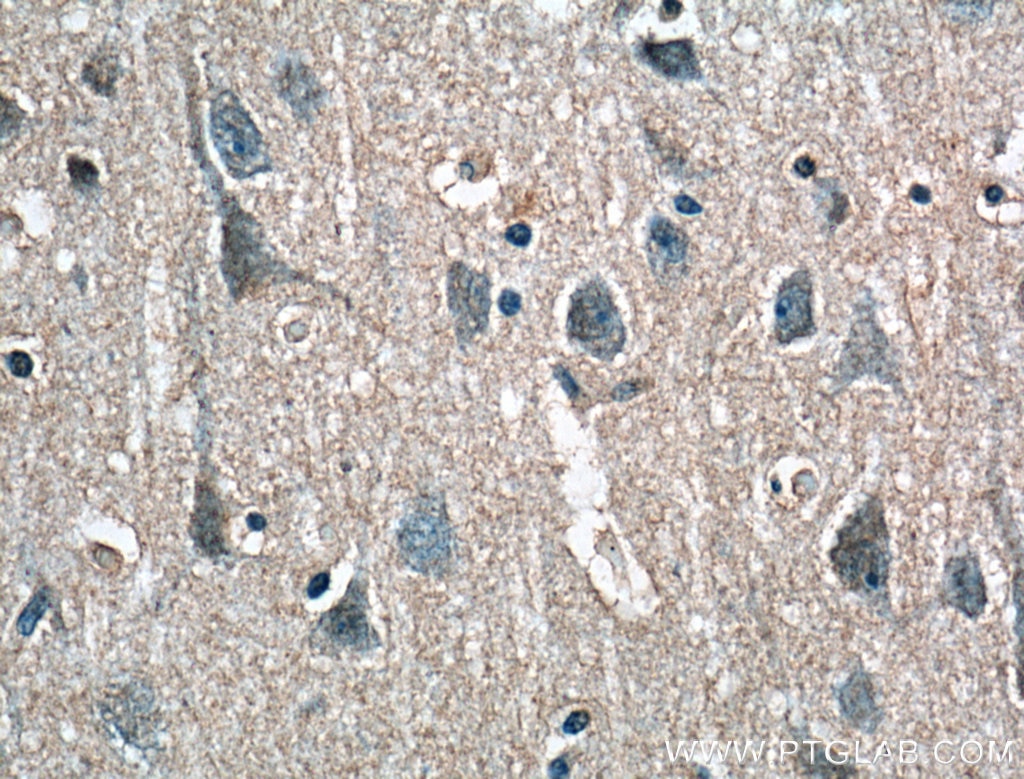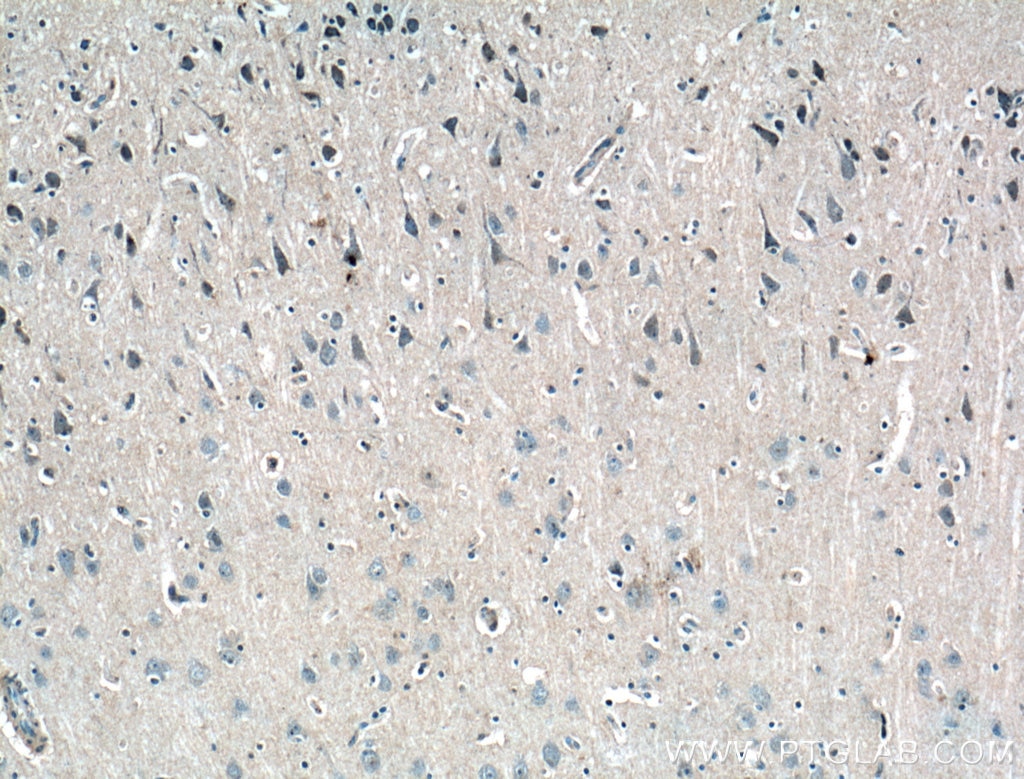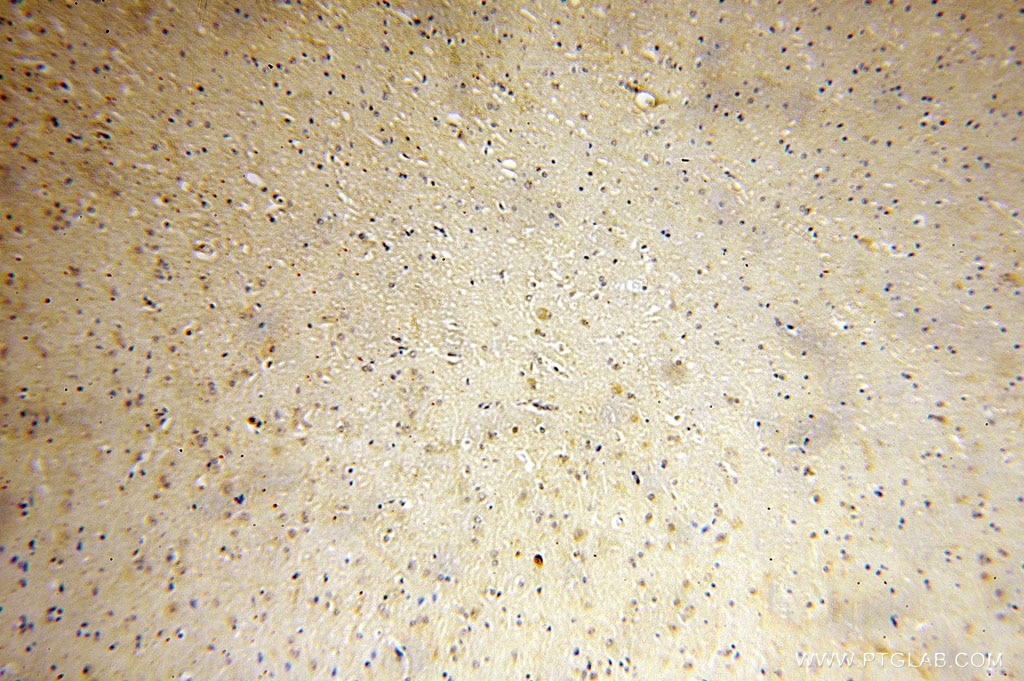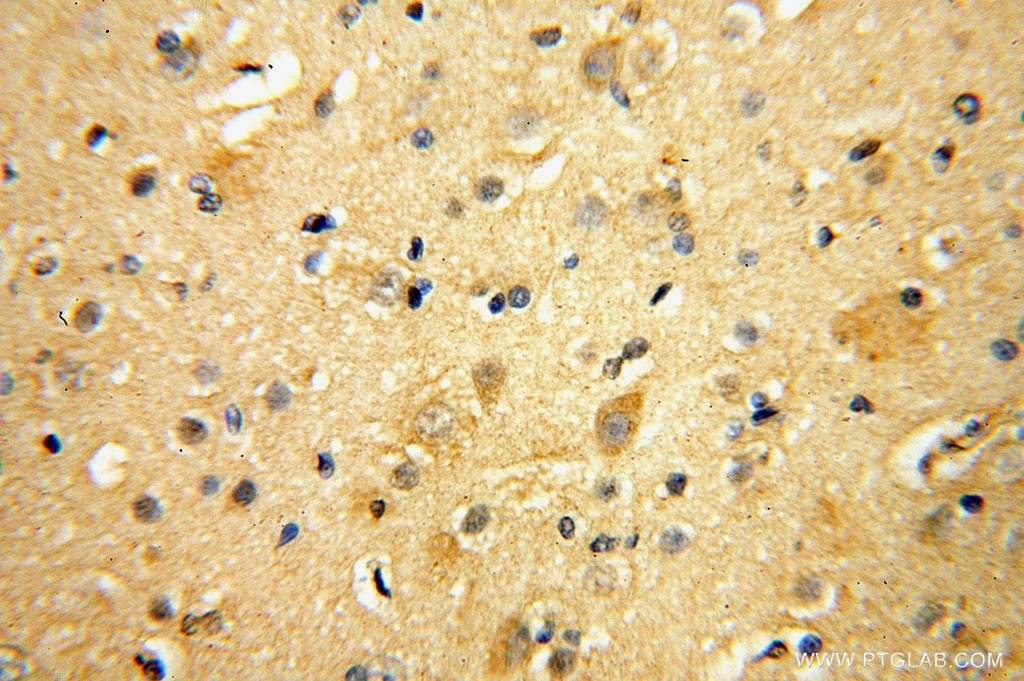Tested Applications
| Positive WB detected in | BxPC-3 cells, PC-3 cells, Jurkat cells, NIH/3T3 cells |
| Positive IP detected in | mouse brain tissue |
| Positive IHC detected in | human brain tissue Note: suggested antigen retrieval with TE buffer pH 9.0; (*) Alternatively, antigen retrieval may be performed with citrate buffer pH 6.0 |
Recommended dilution
| Application | Dilution |
|---|---|
| Western Blot (WB) | WB : 1:500-1:2000 |
| Immunoprecipitation (IP) | IP : 0.5-4.0 ug for 1.0-3.0 mg of total protein lysate |
| Immunohistochemistry (IHC) | IHC : 1:50-1:500 |
| It is recommended that this reagent should be titrated in each testing system to obtain optimal results. | |
| Sample-dependent, Check data in validation data gallery. | |
Published Applications
| KD/KO | See 3 publications below |
| WB | See 12 publications below |
| IHC | See 6 publications below |
| IF | See 3 publications below |
| RIP | See 1 publications below |
Product Information
16086-1-AP targets RPL23 in WB, IHC, IF, IP, RIP, ELISA applications and shows reactivity with human, mouse, rat samples.
| Tested Reactivity | human, mouse, rat |
| Cited Reactivity | human, mouse, rat |
| Host / Isotype | Rabbit / IgG |
| Class | Polyclonal |
| Type | Antibody |
| Immunogen |
CatNo: Ag9120 Product name: Recombinant human RPL23 protein Source: e coli.-derived, PGEX-4T Tag: GST Domain: 1-140 aa of BC010114 Sequence: MSKRGRGGSSGAKFRISLGLPVGAVINCADNTGAKNLYIISVKGIKGRLNRLPAAGVGDMVMATVKKGKPELRKKVHPAVVIRQRKSYRRKDGVFLYFEDNAGVIVNNKGEMKGSAITGPVAKECADLWPRIASNAGSIA Predict reactive species |
| Full Name | ribosomal protein L23 |
| Calculated Molecular Weight | 140 aa, 15 kDa |
| Observed Molecular Weight | 15 kDa |
| GenBank Accession Number | BC010114 |
| Gene Symbol | RPL23 |
| Gene ID (NCBI) | 9349 |
| RRID | AB_2181432 |
| Conjugate | Unconjugated |
| Form | Liquid |
| Purification Method | Antigen affinity purification |
| UNIPROT ID | P62829 |
| Storage Buffer | PBS with 0.02% sodium azide and 50% glycerol, pH 7.3. |
| Storage Conditions | Store at -20°C. Stable for one year after shipment. Aliquoting is unnecessary for -20oC storage. 20ul sizes contain 0.1% BSA. |
Background Information
Ribosomes, the organelles that catalyze protein synthesis, consist of a small 40S subunit and a large 60S subunit. Together these subunits are composed of 4 RNA species and approximately 80 structurally distinct proteins [PMID:9582194]. RPL23 is a component of the 60 S large ribosomal subunit that interacts functionally with murine double minute 2 protein (MDM2 or HDM2 in humans). Upon binding to MDM2, RPL23 inhibits MDM2-mediated p53 degradation, thus activating p53 and inducing cellular apoptosis [PMID:15314174]. Intriguingly, RPL23 has also been suggested to be a negative regulator of apoptosis by suppressing the Miz1-induced transcription of the cell cycle inhibitors p15INK4B and p21CIP1[PMID:19160485].
Protocols
| Product Specific Protocols | |
|---|---|
| IHC protocol for RPL23 antibody 16086-1-AP | Download protocol |
| IP protocol for RPL23 antibody 16086-1-AP | Download protocol |
| WB protocol for RPL23 antibody 16086-1-AP | Download protocol |
| Standard Protocols | |
|---|---|
| Click here to view our Standard Protocols |
Publications
| Species | Application | Title |
|---|---|---|
Nat Cell Biol LIN28 phosphorylation by MAPK/ERK couples signalling to the post-transcriptional control of pluripotency. | ||
EMBO J Decreased synthesis of ribosomal proteins in tauopathy revealed by non-canonical amino acid labelling. | ||
Breast Cancer Res U2AF2-SNORA68 promotes triple-negative breast cancer stemness through the translocation of RPL23 from nucleoplasm to nucleolus and c-Myc expression | ||
Sci Rep Ribosomal protein L23 negatively regulates cellular apoptosis via the RPL23/Miz-1/c-Myc circuit in higher-risk myelodysplastic syndrome.
| ||
Front Oncol Ribosomal Protein L23 Drives the Metastasis of Hepatocellular Carcinoma via Upregulating MMP9.
|

